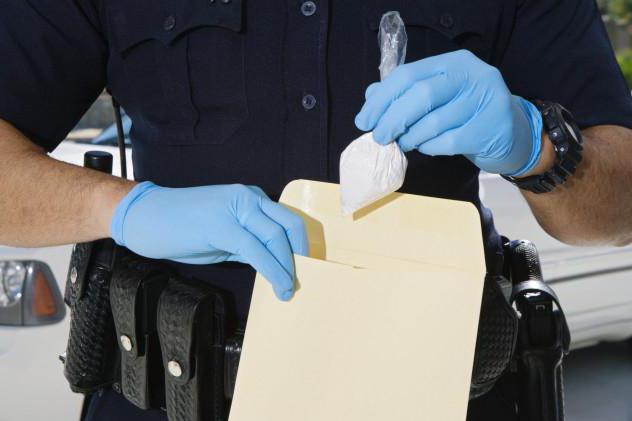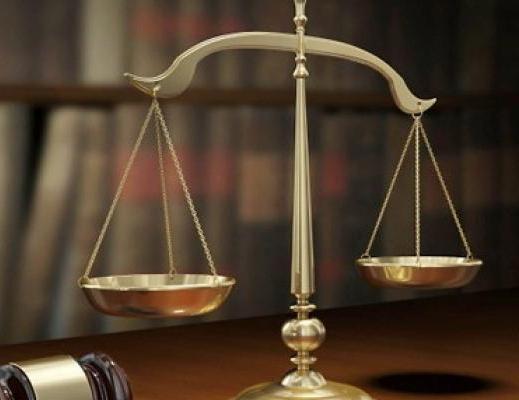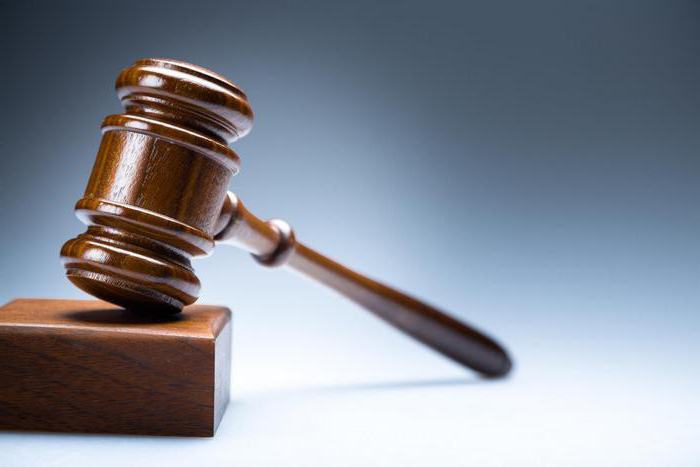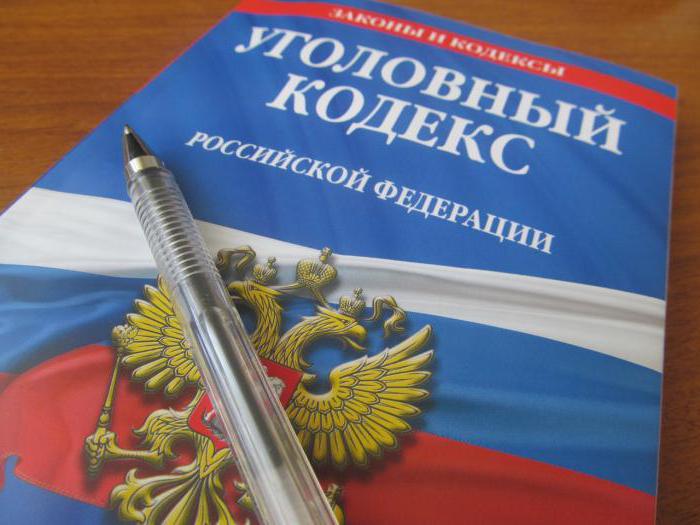The imposition of any sanction provided by law is carried out on the basis of evidence. Current regulatory acts establish the procedure for their collection and provision. Evidence obtained in violation of the rules cannot be attached to the case. 
One of the unlawful ways of forming the evidence base is the falsification of materials. She is punished for Art. 303 of the Criminal Code. With comments we will get to know the norm later.
General composition
By Art. 303 CC falsification of evidence shall be punished:
- Cash collection in the amount of 100-300 thousand rubles. or a component of the guilty income for 1-2
- Arrest up to 4 months.
- Correctional work up to 2 liters.
Section 303 applies to the falsification of evidence in an administrative, civil case by its participant (representative), participant in an administrative offense proceeding, as well as by an entity authorized to consider such a case or draw up protocols on the offense.
Qualifying Compositions
The first is provided for in the second part. Art. 303 of the Criminal Code. Falsification materials on a criminal case by an official (prosecutor, investigator / interrogating officer) or defense counsel shall be punished:
- Forced labor up to three years.
- Imprisonment of up to five years.
- Restriction of liberty up to three years.
In addition to the first two sanctions, a ban on conducting activities / holding positions determined by the court for 3 years may be added. 
If there was a falsification of materials in the case of a grave or especially grave assault, or it entailed grave consequences, the punishment is toughened. For the specified act of the third part Art. 303 of the Criminal Codeprovides for imprisonment of up to 7 years. In addition, the prohibition above applies for a period of up to three years.
4 part Art. 303 of the Criminal Code The penalty for falsification of the results of operational-search actions by an entity authorized to conduct them has been fixed. For this, the perpetrator faces:
- Cash collection of up to 300 thousand rubles. or in the amount of income for 1 year.
- Deprivation of the right to fill positions / carry out activities established by the court for a period of up to 5 l.
- Up to four years in prison.
Art. 303 CC: comments on the object and the objective side
The object of the acts is public relations related to ensuring the achievement of the goals of justice arising in the framework of procedural evidence. 
The objective side is formed by actions expressed in distortion, forgery, substitution of information corresponding to reality or its carrier with imaginary, false information originating from an improper source or obtained in violation of the order established by the procedural law.
The main sign of an assault on Art. 303 of the Criminal Code stands for the fact of substitution. It implies the issuance of fakes as genuine. This means that the mere receipt of materials in violation of the procedural rules without changing the composition of the act for Art. 303 of the Criminal Code does not form.
Thing
It may be, for example, material evidence. The culprit throws some object to the scene of the crime, replacing objects that are directly related to the incident.
The subject of the act may be a document: a receipt, a power of attorney, an audit certificate, a protocol of an investigative measure. Falsification can then be expressed in the indication in the paper of false data. For example, the protocol describes an object allegedly discovered during a search or the time of the action is incorrectly indicated. 
End time
Crime foreseen in dispositions Art. 303 of the Criminal Code, is considered completed upon the direct presentation of falsified evidence for subsequent familiarization with the case. Moreover, his recognition in the future as unacceptable does not affect the recognition of the infringement as completed.
Qualification Features
The composition of the acts varies depending on the type of proceedings. Accordingly, the punishment for a crime committed in the framework of a civil case is punishable under part 1, and criminal - under part two Art. 303 of the Criminal Code.
As follows from the provisions of Article 118 of the Constitution, civil proceedings can be carried out in accordance with the Code of Civil Procedure and in accordance with the APC. It follows that the provisions of part 1 Art. 303 of the Criminal Code apply to participants in the arbitration process if they commit the crime in question.
Subject composition
Responsible are citizens who are endowed with certain attributes and perform specific functions within a given process.
Falsification of evidence by an entity outside the established Art. 303 of the Criminal Code the circle of persons, if there are appropriate grounds, can be regarded as complicity. 
Important point
Part 2 of the analyzed norm as a mandatory punishment provides a ban on certain activities. This sanction indicates that only defense counsel can be held liable. Other citizens who act as defenders, including close relatives, cannot be held liable under article 303.
Subjective aspect
A person who falsifies evidence commits actions with direct intent. The citizen understands that he is changing the characteristics or the content of the information used in the preliminary investigation or during the trial, he is aware of the consequences and wants them to come.
The purpose of the action can be completely different. For example, falsification is aimed at protecting the guilty party from liability or condemning an innocent citizen, obtaining benefits (property, as a rule). The motive for action may also be different. For example, the subject may be motivated by a desire to occupy a higher position, self-interest, the achievement of imaginary justice, or misunderstood official tasks.
Qualifying Attributes
According to the literal meaning of the provisions of part 3 of the analyzed article, the purpose of falsifying evidence in cases of serious or especially serious crimes does not matter. Persons seeking to acquit those involved in unlawful acts or condemn an innocent subject are equally held liable.
The grave consequences that may arise when falsifying evidence include, for example, prolonged detention, unjustified acquittal, unlawful conviction, etc.
Crimes in the framework of ORM / ORD
The concepts of operational-search measures and operational-search actions, designation of the list of persons and structures authorized to conduct them are contained in Federal Law No. 144.
Within the meaning of the provisions of this normative act, the ARD is aimed at:
- Prevention, identification, disclosure, suppression of acts, identification and identification of citizens involved in their preparation or commission.
- The search for subjects hiding from investigative, judicial authorities, evading punishment, missing.
- Obtaining information about inaction / actions that pose a danger to the biological, military, economic security of the state.
The result of the ORM, for the falsification of which the perpetrator is held accountable under article 303, may include, among other things, information on the implementation / non-fulfillment of an event, its timing, procedure, participants, information received during it.
Responsibility for the analyzed norm occurs solely for persons vested with procedural powers to conduct an ARD.Other subjects, including private security guards / detectives, whose work has some similarities with the activities of authorized employees, are not punished under article 303.